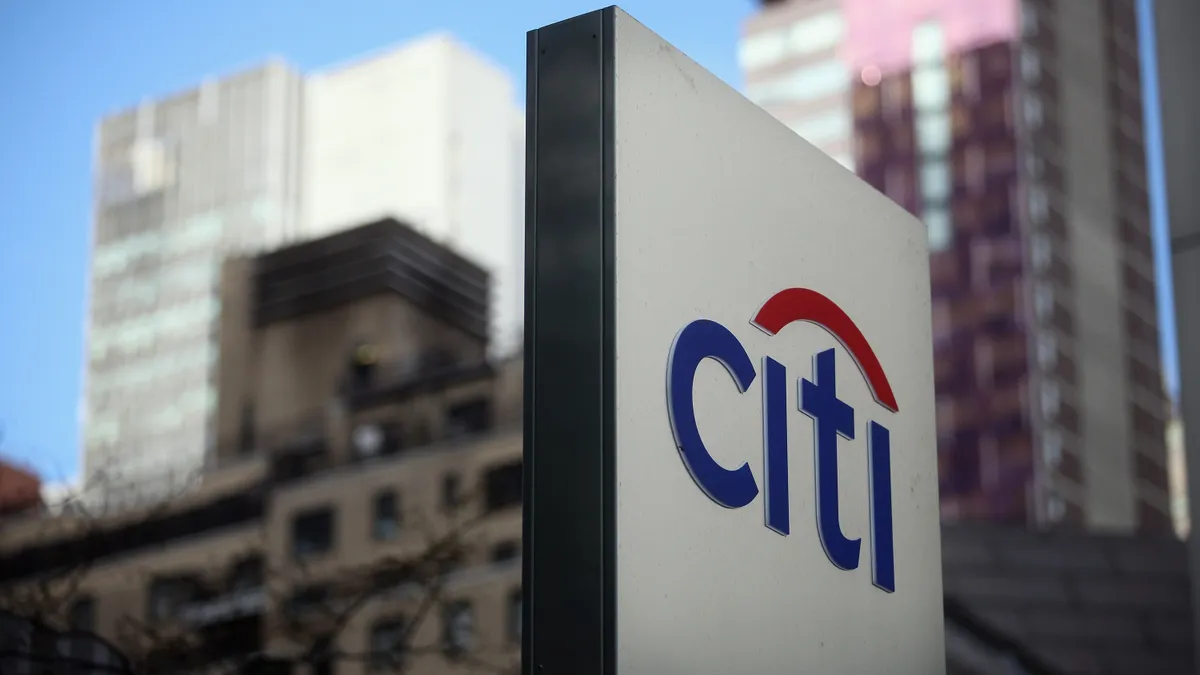Dive Brief:
- Citigroup CFO Mark Mason on Tuesday said he sees sentiment in support of more moves against inflation by the Federal Reserve, which is likely to consider a larger-than-expected interest rate increase of 0.75 percentage point at the end of a two-day policy meeting on Wednesday.
-
“I think what you see here is the sentiment that the Fed is going to have to do something more to try and [stave] off the high levels of inflation that we’re seeing, and to try the best that they can to ensure a softer landing, so to speak, as we manage through what will likely be some type of recession,” Mason said during a talk at The Wall Street Journal CFO Network Summit after he was asked to describe his economic outlook. His comments follow the release of jolting May Consumer Price Index data Friday showing inflation rising at a 40-year record high rate of 8.6%.
- While managing through the “unprecedented amount of uncertainty” stemming from rising interest rates and the Russia-Ukraine war on top of the pandemic disruptions, Mason also said it remained important that the bank and businesses continue to make investments to shore up “competitive advantage,” and for the bank to make progress in such areas as its technology transformation initiative to modernize the bank operations and make sure it had appropriate levels of controls to manage risk.
Dive Insight:
Prices for shelter, gas and food all rose in May following an April decline, with overall inflation increasing rapidly past expectations, damping hopes that inflation had peaked and intensifying fears of a recession.
Mason’s comments come on the heels of those of a number of other financial executives who have weighed in recently on the likely severity of a coming economic downturn. JPMorgan Chase CEO Jamie Dimon sounded perhaps one of the louder alarms, projecting big storm clouds on the horizon that “may dissipate” as opposed to a tsunami. He later likened it to a hurricane of unknown strength bearing down on the economy, according to a June 1 Financial Times report.
Mason, whose remarks were more tempered, said he was “not in the business of meteorology or predicting the weather.” Currently the consumer business is “quite healthy” but the bank is mindful as it considers what a recession could mean and the potential impacts of higher gas prices and inflation on consumers, he said.
Likewise, he said corporate balance sheets are for now “very strong” but the bank’s multinational and middle market clients are shoring up liquidity positions and the bank is having lots of dialogue with clients who are focusing on the dynamics of the Russia-Ukraine conflict’s impact on energy, commodities and supply chains, and inflation’s impact on expenses.
“I know our clients are also focused on their expense base and what inflation could mean for wage increases and product input increases,” he said. “We’re all kind of thinking through and planning for different scenarios just given, again, the mix of inputs being very different than anything many of us have experienced before.”
Separately, in his wide-ranging talk, Mason said the bank was making “significant progress” on its $1 billion 2020 commitment to address the racial wealth gap in the U.S. even though there is still more work left to do. The bank had committed to a three-year plan and “we got there in a little more than a year in terms of putting that to work,” he said.













